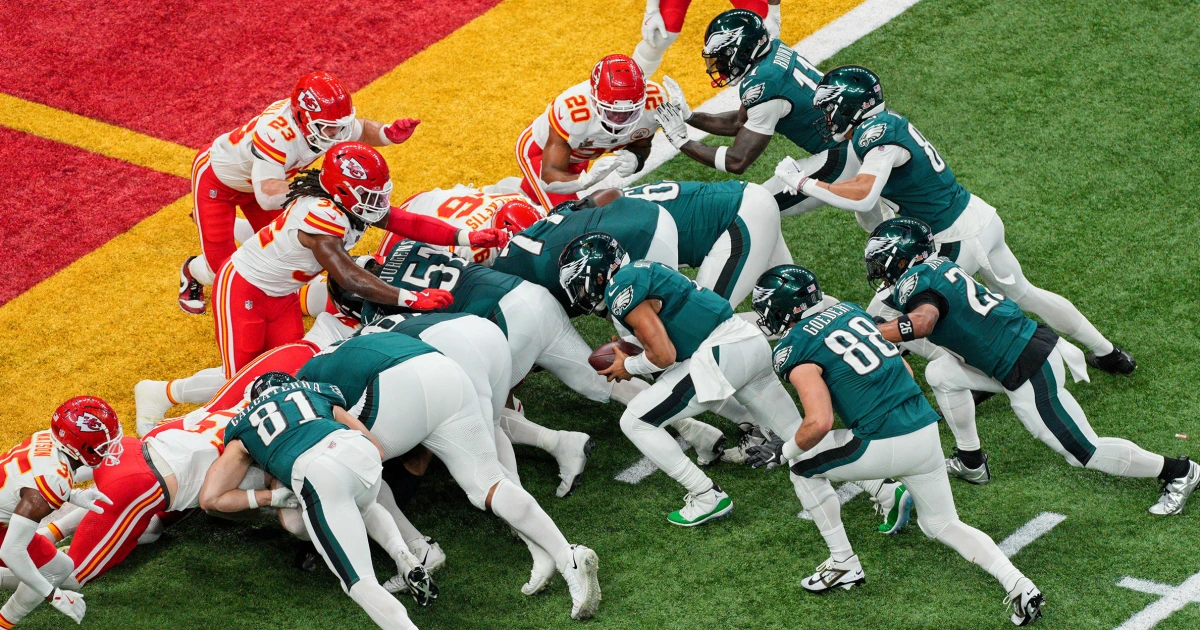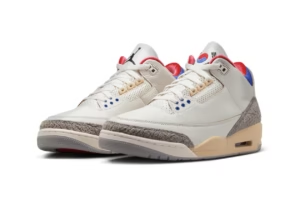The Philadelphia Eagles’ go-to fourth and inches play, known as the “Tush Push” or “Brotherly Shove,” has been highly effective and nearly unstoppable, helping the defending Super Bowl champions convert crucial short yardage situations.
The play resembles a traditional quarterback sneak, where the quarterback lines up directly behind the center. However, unlike the standard sneak where the quarterback drives forward on his own, the Tush Push involves one or more teammates lined up behind him, who physically push the quarterback forward after the snap to gain the necessary yardage. It is most commonly used in short yardage or goal line scenarios and has a high success rate.
Despite everyone knowing the play is coming, opposing defenses have struggled to stop it. That success has made the play both admired and controversial. Over the past few seasons, there have been talk around the league to ban the play altogether. Critics argue that the “Tush Push” does not showcase the skill set of NFL players and diminishes the excitement of the game.
The Green Bay Packers, who lost to the Eagles in the wild card round of the playoffs during Philadelphia’s Super Bowl LIX championship run, submitted a formal proposal to ban the play. Packers president Mark Murphy called it “bad for the game,” and the team’s proposal sought a rule change that would prohibit offensive players from pushing a teammate who lines up directly behind the snapper and receives the snap.
In response to growing concerns over injury risks, a rule adjustment was implemented this season: any player pushing the quarterback must now be positioned at least one yard behind him at the snap. This change was designed to reduce the force and immediacy of the push while improving player safety.
On Wednesday, NFL owners voted on the Packers’ proposal, which would have effectively banned the Tush Push. Although a majority of teams voted in favor of the ban, the final poll fell just two votes short of the required 24 vote threshold. The final count was 22 to 10.
According to sources, the 10 teams that voted against the proposal were the Philadelphia Eagles, Baltimore Ravens, Cleveland Browns, Detroit Lions, Jacksonville Jaguars, Miami Dolphins, New England Patriots, New Orleans Saints, New York Jets, and Tennessee Titans.


